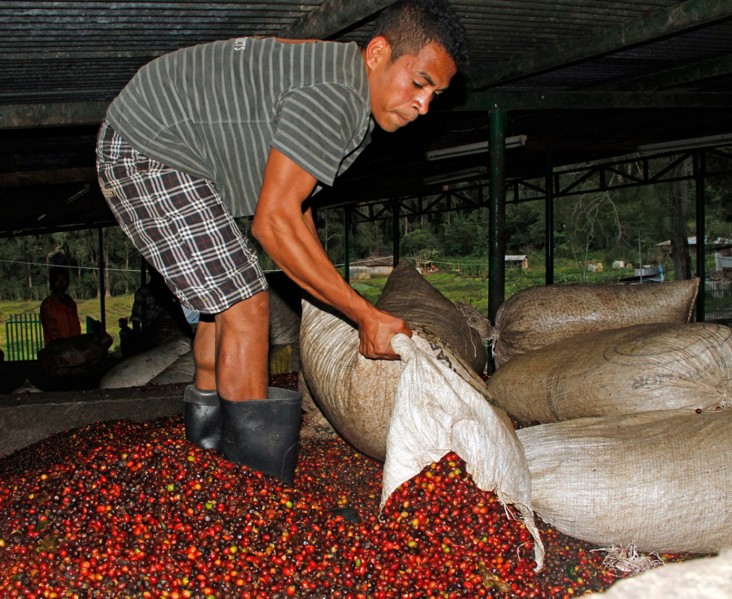|
Purpose: To support Timor-Leste’s economic growth by increasing productivity in the agricultural sector. |
Location: Liquica, Aileu, Ermera, Covalima, Manufahi, Baucau, Oecusse and Bobonaro districts. |
|
Partner: National Cooperative Business Association (NCBA) Sub-grantee: Cooperativa Café Timor (CCT) |
Duration: October 2010 – September 2014 |
|
Cooperative Agreement: $10,200,000.00 |
|
|
Partner Contact: Sam Filiaci Chief of Party Email: clusa999@gmail.com
|
USAID Contact: Flavia da Silva Environment and Infrastructure Specialist Email: fdasilva@usaid.gov |
Background:
While agriculture is the primary source of livelihood for approximately 80% of the population of Timor-Leste, the majority of farmers have limited access to the technologies and practices needed for sustainable and efficient agricultural production. Subsistence and commercial producers face significant constraints, including limited access to quality inputs, low yields high post-harvest losses, and limited access to markets. USAID’s five-year (2013-2018) development strategy identifies inclusive economic growth in the agriculture sector as central to strengthening the institutional and human capacity for development in the country.
To support Timor-Leste to sustainably reduce poverty and undernutrition, USAID projects assist Timorese farmers to move away from subsistence agriculture towards more diversified, income-generating farming and to link with domestic and international markets. USAID projects also align with the Government of Timor-Leste (GOTL) objective to support the transition from subsistence to commercial farming and to increase the production and productivity of key agricultural commodities.
Summary:
Through Consolidating Cooperative Agribusiness Recovery (COCAR), USAID supports Timor-Leste’s economic growth by increasing productivity in the agricultural sector. COCAR, a partnership between USAID and the New Zealand Aid Programme (NZAid), works with the Cooperativa Café Timor (CCT) to increase income-generating opportunities for CCT farmers in the rural highlands through crop rehabilitation, intercropping, and crop diversification. In addition, COCAR works to empower Timorese women as economic actors in the communities where they work, which is significant considering the social and cultural pressure on women to provide family and household care. Through COCAR, USAID also supports the delivery of health care services through mobile clinics and community health extension teams.

In 2013, USAID’s COCAR trained over 3,000 coffee farmers in improved coffee farm management; these farmers pruned almost 460,000 coffee trees in five districts, thereby doubling their yield. More than 3,500 farmers participated in training on cassava production, and an estimated 24 million stakes, or cuttings, have been produced for replication last year. These farmers sell the harvest as fresh tubers in local markets, or to CCT, to be processed into modified cassava flour for international and domestic markets. USAID’s COCAR added an additional 272 cocoa farmers in 2013, for a total of 522 households that grow cocoa, and is preparing for the distribution of over 110,000 cocoa seedlings in 2014.








Comment
Make a general inquiry or suggest an improvement.